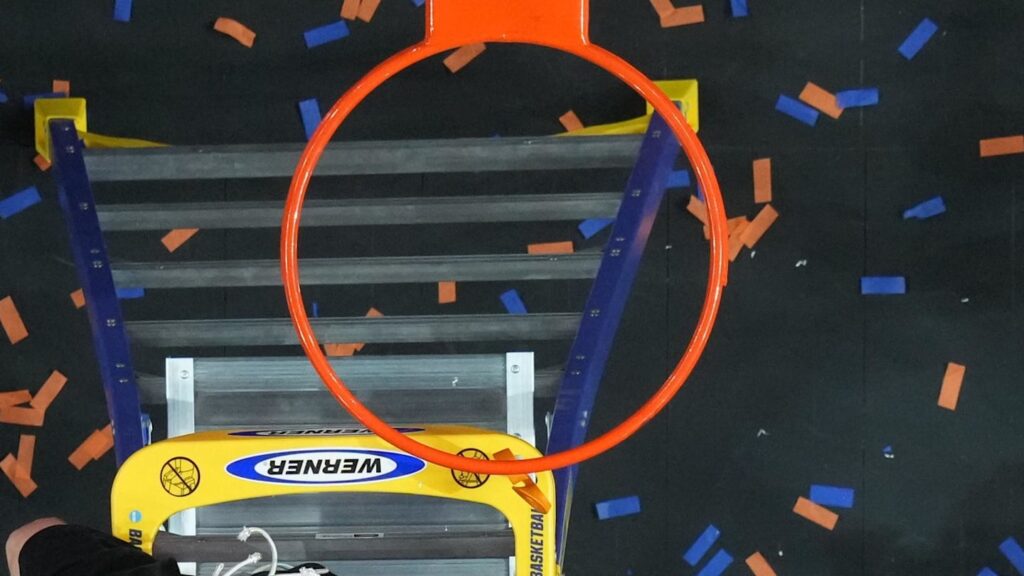Misko Raznatovic is the super agent of European basketball. He represents NBA and overseas stars, from Nikola Jokic to Dzanan Musa, and founded KK Mega Basket, the Serbian and Balkan basketball club focused on player development. Jokic, Nikola Topic, Nikola Jovic and other NBA players have risen through its ranks. Despite all the twists and turns that European basketball has seen over the past decade, Misko has always been a few steps ahead in terms of recruiting, planning and adapting.
KK Mega’s growth has occurred despite periods of significant decline – and even bankruptcy and closure – for some of the Balkans’ most notable basketball clubs, such as Partizan Belgrade, KK Split and Olimpija Ljubljana. Now, with the explosion of NIL money in NCAA basketball pushing colleges to build larger recruiting teams and front office setups, Raznatovic is making the most of that development and providing a number of his young clients with solid opportunities in the NCAA.
David Mirkovic and Andrija Jelavic recently committed to NCAA universities for the upcoming season. They are now joined by Montenegrin forward Andrija Grbovic, who spent last season with SC Derby and has committed to Arizona State for next season. Grbovic, a tall, stretchy 6-foot-9, brings big, elite potential to Arizona State. He will also turn 22 in September, meaning he could play college basketball almost into his late 20s.
Thanks to possible NIL deals, Grbovic could earn more over the next few seasons than he would for the rest of his professional career afterward. Professional actors in Europe typically bring home low six-figure salaries. Even a ten-year career for Grbovic in Europe might not bring in a total income compared to what he could earn on no-show deals.
While it is clear that Raznatovic is once again one step ahead in doing what is best for his client’s career and capitalizing better than the rest of his competitors on a new development in the basketball transfer market, it once again raises the question of where the development of European basketball is headed.
Currently, the situation appears to be an accelerating downward trajectory. Following the stories of Luka Doncic and Victor Wembanyama, European basketball seemed poised for a new generation of success. NIL money has torn that to shreds. Top foreign prospects Egor Demin and Kasparas Jakucionis signed NCAA contracts last summer and advanced through selection committees, while their competitors back in Europe have largely seen the opposite.
Italian winger Dame Sarr worked his way into Barcelona’s rotation, capitalized on the opportunities he was given, and then, ahead of one of their biggest matches of the season – an El Clasico against rivals Real Madrid – he jumped in to take part in the Nike Hoop Summit. Barcelona and Sarr have since gone their separate ways.
With each passing day, European clubs have less and less incentive to develop local talent. Their best prospects are major investments, sometimes as young as 12 years old. Then, when they turn 18, they leave for next to nothing for an NCAA contract. This development also does not appear to be a priority for the EuroLeague – the biggest club competition in European basketball – or for FIBA. The two are still fighting to establish top-level senior club competitions, with the NBA getting involved in their NBA Europe project.
Young players having more options and getting paid is a good thing, to be clear. But the rapid decline in European basketball development is a concern that could have long-term consequences for player development on the continent as a whole. Currently, no solution is in sight.
Would you like to join the discussion? Like Draft Digest on Facebook And follow us on Twitter to stay up to date with all the latest NBA Draft news. You’ll also get to meet the team behind the cover.

